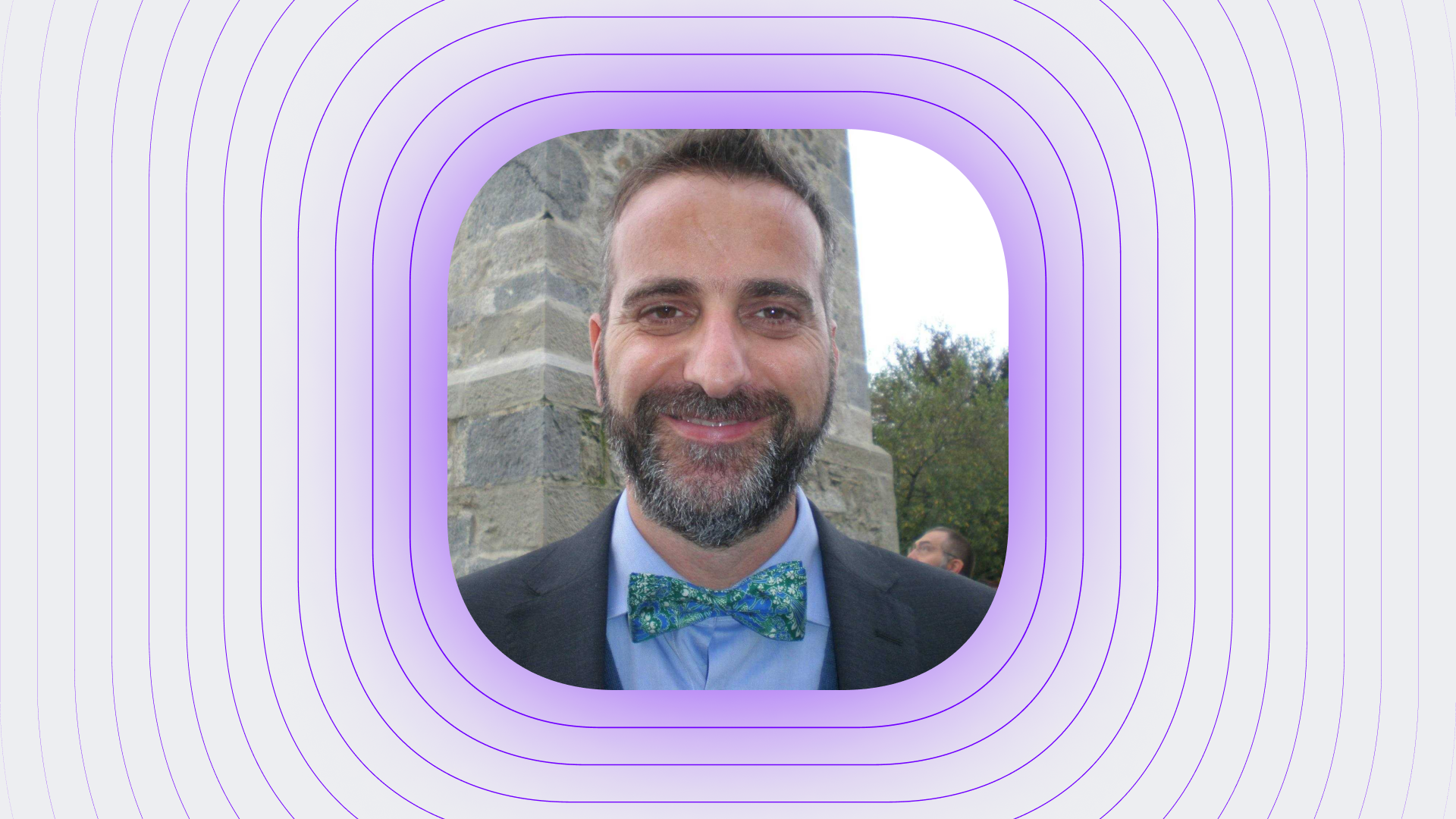"If you know the tech, it will be your friend. But if you don't get to know it, it will be your enemy."
Massimo Franceschet on his groundbreaking new proposal for a decentralised, web3-driven education system.

From soul-bound tokens to an online Socratic teaching method, we sat down with the wonderful Massimo Franceschet to discuss his groundbreaking new proposal for a decentralised, web3-driven education system.
Prof. Massimo Franceschet (Computer Science, University of Udine, Italy) has released several papers on crypto, generative art, Blockchain, and NFTs and contributed to SuperRare’s new quadrantic voting model for the platform's Space Race. He’s also well known in the field of crypto art with the alias @hex6c, being one of the first artists to mint his works on blockchain in Italy and worldwide. His projects are available on SuperRare and Art Blocks.
— Could you tell us about your recent Web3 education model?
I call it DAE, and it stands for Decentralised Autonomous Education. In fact, it's an example of a DAO for education. I have been teaching at university level for over 20 years now and noticed (especially during the pandemic break) that the effectiveness of our current teaching model left a lot to be desired.
Today both teachers and students act according to the principle of minimum effort. And so, they often get bored and tired on both sides of the desk.
The DAE, however, as an alternative teaching and learning model, seeks to apply the philosophy and the applications of Web3 to education. The general goal of the project is to make the classroom more engaging and active, relying on principles such as responsibility, meritocracy, and inclusiveness.
Basically, there are stakeholders like in a DAO, and initially, these stakeholders are students and teachers. Each stakeholder can earn karma, which is a measurement of the participation of the student or, in general, of the stakeholder in the learning game. So, students can gain more karma through vehicle actions, which are behaviours that, let's say, increase the overall homogenous knowledge of the class. For example, a student might study a new topic and teach it to the entire class. In this way, the student increases everybody's knowledge, including the teacher's.
Students might also decide what topic will be the next to be taught, the next invited speaker, or the next teacher to give a class through voting. Moreover, students' karma might also partially determine the final assessment by the teacher to the student. Finally, we have a process that I call the Karmic Remuneration, where, at the end of the class, the karma is translated into rewards - done according to a model which is called ‘Learn to earn.’
— So ‘Karma’ is that like a token?
Yeah, it’s a soul-bound fungible token. So basically, it's a token that the teacher air drops to the students, and the students cannot transfer it. So it's like it's attached to the soul of the student.
What do you think are the main issues with the modern education system currently?
Well, I think there are some major problems in the traditional education system. First of all, the learning process is hierarchical; it's top-down from teachers to students. The teacher typically fixes all variables in advance. Hence, there is no free variable, there is no active role for the students, they are mostly passive.
It's tiring and not effective, meaning that a large part of knowledge is lost in disposed information during the transfer from teacher to students.
Of course, I'm not saying that every school, every university is like that, but at least this is the general picture in the traditional educational system at university level.
— In terms of your system, how would you say it addresses these issues, then?
Bear in mind that I'm not claiming that my system will solve these problems and save education! As a researcher, I’m simply doing an experiment and trying to understand if and how blockchain can improve the learning process.
First of all, I’m proposing gamification of the learning process. My model introduces gaming elements, such as active participation, to reach a rewarding goal for the students. So, you “win” by collaborating or coordinating with others around you, and this is typical, of course, of video games.
In the end, if the game succeeds, all stakeholders are winners: teachers and students in particular, but also external stakeholders. Think about a company that will eventually hire the students: if the students are more prepared and more engaged, then the company will also benefit.
— With the course starting tomorrow, what's your hypothesis, or what do you expect to see?
I’m very curious because this is going to be the very first iteration with the real students. We made a simulation, but this is going to be the first real iteration of the model. I’ll probably learn a lot of new things and, of course, find out I've made some mistakes. I’m going to receive a lot of feedback to improve it because when I go back to teaching next October, I'm going to apply this model at the university in Italy. It will be a great challenge.
— Are you familiar with the democratic education system, and do you have any thoughts on how that may compare and contrast to your system?
To be honest, I developed this learning model last summer from scratch without any reference, and I consider this approach a benefit because my mind was totally blind and so not influenced by any other model. In retrospect, of course, I discovered that I came up with a model that shares many futures with other educational models, one being the democratic educational system.
— Moving on, as a data science professor, you're very much familiar with AI. How do you predict the AI revolution will influence education?
First of all, I have to admit that I'm not an expert in AI, but I have an opinion. My assessment is that AI is here to stay, and I think we must adopt a very natural approach with no barriers and no regulations. Like any other technology, AI will flow naturally in our lives and work, and we will adapt accordingly.
The only advice I have is the following: Do not use AI or, in general, any technology, without knowing it, without studying it. Knowledge is really the key in blockchain, and in AI, in Web3, in fact, in every topic, in every aspect. If you know the tech, the tech will be your friend, and you will co-work with it. But if you don't know it, or if you ignore the tech, well, it will be your enemy, and it will dominate you for sure.
As for education, this is a good question. I'm not sure I have a good answer yet. Of course, I'm studying this topic because my goal is to integrate AI into the model I'm proposing. In general, the main potential use of AI in education is for personalised learning, where you can use machine learning to analyse student data and tailor your classes in response.
The scheme for educating students in the future will be to look at asking the right questions and not so much at giving the right answers. The right answer can be given by a chatbot, but if you don't have the right questions, the chatbot is never going to give the right answer. So, it will probably be more important to know the questions than the answers.

